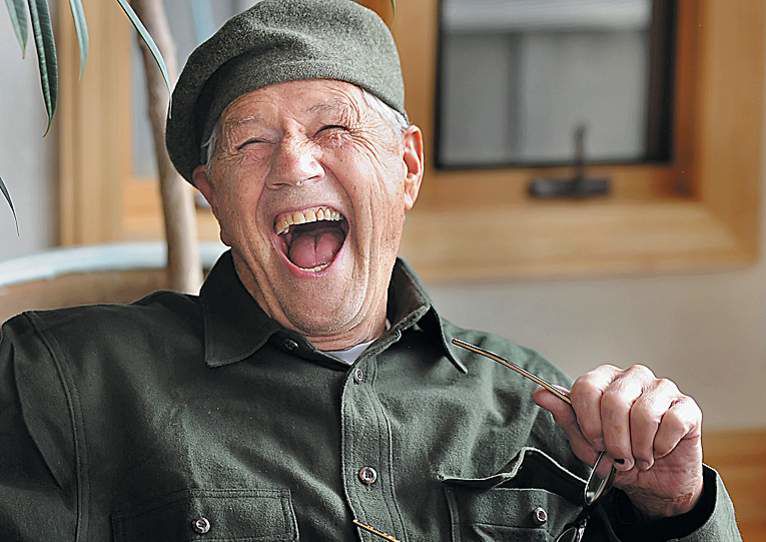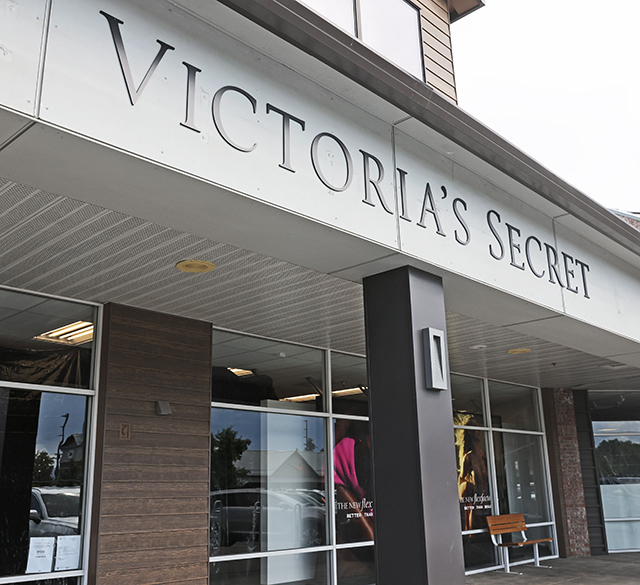Ashland man recalls his family’s Dust Bowl days
Published 4:00 am Monday, December 3, 2012

- Bill Forester, 82, talks about the Dust Bowl adventures of his family, featured in a new documentary and book.
ASHLAND — When William “Bill” Wallace Forester looks at a dime in the palm of his hand, chances are his thoughts go back to late 1935.
“My mother had absolutely nothing in the house to feed her family,” said the 82-year-old Ashland resident. “But she had found a dime. She told my 13-year-old brother, Dick, to go buy a box of oatmeal. He got a big box. That kept us going.”
Trending
Not only was the nation caught in the depths of the Great Depression, but the Foresters — mother Rose and her nine children, with young Bill at the tail end — were in the epicenter of the devastating Dust Bowl. They lived in Texas County on the Oklahoma Panhandle, where the family farm had been turned into a dusty desert by unrelenting winds blowing the topsoil off the land parched by drought.
Family patriarch William Harrison “Harry” Forester had left just before Thanksgiving for the West Coast in a desperate search for work to save his family from starvation. Hitching a ride on the back of a neighbor’s farm truck, he was the first in the family to join the great migration, made famous by the fictitious Joads in the classic “Grapes of Wrath” by John Steinbeck.
“For Thanksgiving, my dad ate a hot dog while sitting on a curb in Flagstaff, Arizona,” Forester said. “He said he was thinking about his kids back in Oklahoma, about his family. He was one miserable puppy. That was the nadir of his existence.”
Forester and his surviving siblings were featured in Ken Burns’ two-part television series, “The Dust Bowl,” a four-hour PBS documentary that ran on Nov. 18 and 19.
A retired teacher and an Army veteran of the Korean War, Forester and his wife, Juanita, also a retired teacher, have two grown children.
The Dust Bowl storms scoured the topsoil off some 100 million acres of farmland in the nation’s breadbasket. They began in 1932 and reached their worst with a sun-blotting Black Sunday on April 14, 1935. That’s the day the Forester family, on their way home from church, found refuge in a neighbor’s barn.
Trending
From 1932 to 1935, the Foresters lived on what they called the “Little Red Farm” in northwest Texas County. Bill Forester is unsure whether the family owned the small spread or rented. He does know it was close to farmland his parents owned in adjacent Cimarron County.
Before the hard times, his parents would have a few tons of coal hauled in to heat their home and cast iron cooking stove.
Desperate to feed their stock, his father and neighboring farmer Earl Tucker harvested wild yucca plants, cut off the sharp spikes and ground the plants up to produce animal feed, he said.
“I was young, but I understood very well that as I grew up that we were sliding into abject rural poverty,” he said, noting that he was 5 when Black Sunday struck.
“Dad and Earl Tucker knew they had to go somewhere to feed their families,” he added. “The Tuckers decided they were going to Oregon. They started loading farming gear on their truck.”
His father asked to go along to find work. The rest of the family stayed in Goodwell, Okla., with Forester’s widowed grandmother.
Since his father and the Tuckers’ oldest son had no place to ride in the truck, the farmers harvested a Model T cab from a junkyard, and sat it on the back of the truck for the two to ride in, Forester said.
They left just before Thanksgiving 1935. After the low point of his hot dog holiday meal, his father was able to find a job working a farm for a Mennonite community near Paso Robles, Calif. The pay was $3 a day, minus a buck for room and another dollar for food.
“Dad started earning a buck a day and sent almost all of it to us, keeping us alive,” Forester said.
Meanwhile, the Tuckers, who never made it to Oregon, headed north to Oakland, Calif., where there was more work with higher pay. They sent word for Harry Forester to join them. It was in Oakland where he received an hourly wage.
“We started saving because we knew we had to go to California to be with our dad,” Bill Forester recalled.
They saved enough to purchase a 1928 Chevrolet 4-cylinder farm truck.
“My oldest brother was something of a woodworker, and he fabricated a chuck wagon box so we could camp and feed ourselves without going to a restaurant,” he said, adding, “We were too damn poor to eat out.”
Fortunately for them, a freight train had derailed near Goodwell, spilling two cars full of citrus fruit from California. “We pigged out on California oranges and lemons, and took a bunch of them with us on our trip,” Forester said.
Just before Independence Day in 1936, Rose and her nine children and the family dog, Trixie, headed west in the farm truck.
“We came west on Route 66 just like the Joads,” he said. “People looked at us. But our jalopy wasn’t as bad as some.”
“We rode into Bakersfield on the Fourth of July in 1936,” he said. “I remember there were firecrackers in the city park. We stopped and rested all afternoon.”
They would arrive in the Oakland hills to be reunited with the family patriarch on July 6.
“The Tuckers were up on a steep hill,” he said. “Dad scuttled down the trails to intercept us. It was a moving reunion for our family. Every time we think about it, we relive the joy of that moment.”
———
Information from: Mail Tribune, http://www.mailtribune.com/








